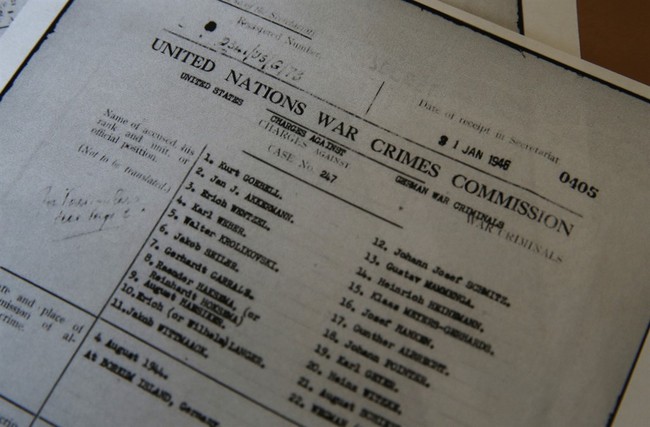The United Nations has a significant task ahead as it reflects on its history, especially considering the occasion of International Holocaust Remembrance Day. This day, which was established by the UN itself, carries a weight of responsibility to not only remember the atrocities of the Holocaust but also to educate future generations. The aim is to ensure that such horrors are not forgotten, ignored, or denied.
Since 1951, Israel has observed Yom HaShoah to honor the six million Jews who perished during the Holocaust. The United Nations, in 2005, expanded this remembrance globally through Resolution 60/7. This resolution was designed with two primary purposes: to recall the hatred that led to the Holocaust and to educate people worldwide about its history. UN Secretary-General Ban Ki-moon emphasized this during a speech in 2008, asserting the importance of remembering the victims and applying the lessons learned to prevent future atrocities.
Give Me Five Podcast
Despite these noble intentions, the actions of the United Nations have often seemed contradictory to the resolution’s goals. Between 2015 and 2023, the UN General Assembly passed 154 resolutions against Israel while only 71 were directed at all other countries combined. The year 2024 alone saw 17 resolutions against Israel, compared to a mere six against the rest of the world. Notably, only one resolution each targeted the regimes in North Korea, Syria, Myanmar, and the United States, the latter for its embargo on Cuba.
This pattern of resolutions suggests a troubling bias. While the UN professes a commitment to preventing attacks on Jewish people, as stated in Resolution 60/7, its actions have often seemed to support terrorism under the guise of endorsing a Palestinian state. The UN has consistently failed to condemn groups like Hamas, which have committed heinous acts against Israelis. This silence stands in stark contrast to the numerous resolutions criticizing Israel’s defensive actions.
The UN’s failure to condemn Hamas, alongside its frequent resolutions against Israel, has fostered a global environment where antisemitism thrives. Resolution 60/7 explicitly rejects any denial of the Holocaust, yet the international atmosphere created by the UN’s actions has contributed to a rise in Holocaust denial and Jew hatred worldwide. This alarming trend was once unthinkable, as Holocaust deniers were often dismissed as fringe extremists.
In recent years, however, Holocaust denial has surfaced among more mainstream figures. Influencers with significant followings have propagated dangerous myths and conspiracy theories. Candace Owens, for instance, has been noted for spreading antisemitic rhetoric, linking Jews to various conspiracies and denying documented atrocities like Josef Mengele’s experiments during the Holocaust.
Owens is not alone in her views. Podcasters like Nick Fuentes have made abhorrent comparisons and outright denied the Holocaust’s occurrence. Fuentes has even gone so far as to praise Adolf Hitler, contributing to a troubling narrative that minimizes the Holocaust’s impact. Such statements are not only offensive but dangerous, as they perpetuate falsehoods that can influence public perception.
Figures like Kanye West and Dan Bilzerian have similarly downplayed the Holocaust, with West suggesting that the Nazis had positive contributions and Bilzerian betting his wealth on a false narrative about the Holocaust’s death toll. Their remarks reflect a broader issue, as surveys indicate that a significant portion of young adults today doubt the Holocaust’s historical truth.
This growing list of Holocaust deniers highlights a disturbing shift in societal attitudes, fueled in part by influential voices and the UN’s perceived inaction. The responsibility now falls on global leaders and organizations to counter these falsehoods with truth and education. By failing to uphold the principles set forth in Resolution 60/7, the UN risks undermining its own mission and allowing the spread of dangerous ideologies.
The proliferation of Holocaust denial in the past 16 months has been alarming, with misinformation spreading rapidly through social media and other platforms. This trend underscores the importance of education and remembrance, as highlighted by International Holocaust Remembrance Day. It is crucial for the United Nations and other global bodies to reaffirm their commitment to these goals.
In combating Holocaust denial and antisemitism, the UN must take a firm stand against those who seek to distort history. By doing so, it can honor the memory of the Holocaust’s victims and work towards a future where such atrocities are never repeated. The challenge is significant, but the stakes are too high to ignore.

